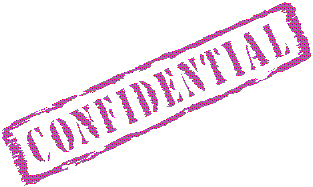
Interview Secrets

 |
Interview Secrets |
 |
|
Dos
Don’ts
|
Q: Tell me about yourself.
A: Use your resume as a guide. Talk about your education, work history or
school activities, and your goals for the future (involve the company you
are interviewing with in your goals).
Q: Why do you want to work for our company?
A: Start by telling the interviewer what you can do for them. If you do
your homework on the company, you can indicate that you would like to be
part of a current project. Mention some of the company highlights from your
research and your desire to contribute to such a progressive company. Then
talk about how working for their company will help you meet your goals.
Q: What do you look for in a job?
A: State that you are looking for the opportunity to challenge and
improve your skills.
Q: What are your strengths?
A: Think of at least three and try to relate them to the job you are
interviewing for. Always give examples of how you used your strengths in the
past to solve problems.
Q: What are your weaknesses?
A: Turn the negative aspect into something positive or show your weakness
as an opportunity for improvement (i.e., "Since I just graduated, my
greatest weakness is that I do not have much experience, but I am excited to
learn new things.")
Q: Do you have any questions?
A: Always have at least two questions ready before the interview. Here
are some examples:
Could you describe your ideal employee?
How would you describe a typical day in this job?
What are some of the company’s problems that I would be working to fix?
How does this job fit in with the rest of the department?
How long do people usually remain in this job?
Do not ask how much you will get paid; you talk about that after
they make you an offer.
| Send the Letter | There are many types of letters to consider as you apply for jobs. Below you will find several types of letters, their purpose and when to send them. | |
| Type of Letter | Purpose | When to Send It |
| Cover | provide a sales pitch, highlight resume | anytime you submit a resume |
| Ad Response | same as cover letter but focused on the ad's specifications | when you respond to an ad |
| Cold-call | catch the employer's eye; provide a detailed sales pitch that replaces the resume | when you want an employer to consider hiring you even if a position is not advertised |
| Thank you for being my reference | thank the person; educate him/her about your skills, history, and goals | as soon as someone agrees to serve as your reference |
| Thank you for the referral/help | promote the relationship with your contact | as soon as someone agrees to serve as your reference |
| Thank you for the interview | express interest; add anything you forgot in the interview | the day of (or day after) the interview |
| Thank you for considering me | transform employer into contact; possibly get a referral | as soon as you learn you were not hired for the position |
| Thank you for hiring me | thank the employer and express your enthusiasm; confirm compensation package | as soon as you have accepted the job offer and negotiated compensation |
Want to ace your interview? Follow these steps:
Step 1 - Read the job description and write down all the things the company is looking for.
Step 2 - Write down how your education and/or experience fills each requirement. Don’t forget examples!
Step 3 - Think of possible interview questions and write down your answers.
Step 4 - Write down at least two questions for the interviewer.
Step 5 - Write down reasons why you want the job and why you think they should hire you.
Step 6 - Read over your lists several times and practice saying your responses out loud.
Step 7 - Review your lists just before the interview, so you will not forget anything.
 |
How to Answer Illegal Questions
The questions employers can ask during job interviews are
regulated by law. Employers are only allowed to ask questions relating to the job,
but occasionally employers may ask an illegal question deliberately (or accidently).
Below are some illegal questions you may be asked during an interview, the reasoning
behind the questions and a response you can give that may address their concerns.
Illegal questions:
How old are you? What is your birth date?
Why they might be asking: Some jobs have minimum age
requirements (i.e. to work in a bar you must be of legal drinking age.)
Possible answer: I am old enough to meet the minimum
age requirements for this position.
Illegal questions: Are you married? Do you
have children? When do you plan on starting a family?
Why they might be asking:
They are concerned you will have family conflicts if you are asked to
travel, work night shift or overtime.
Possible answer: My personal life will not affect
my ability to do this job.
Illegal questions: Are you a U.S. citizen? Where
were you born? What is your nationality?
Why they might be asking: They need to know if you
are authorized to work in the United States.
Possible answer: I am able to legally work in the
United States.
Illegal questions:
Do you have any disabilities? What is your family medical history? How often
did you call in sick at your last job?
Why they might be asking:
They are concerned that you will not be able to perform job related functions
because of physical limitations.
Possible answer: I would be able to physically
perform the essential functions of this job.
Note: After you are offered the job, you will
have to provide proof that what you said is true. For example, may need to provide
a copy of your drivers’ license, social security card or work visa. Also, you may
be required to pass a physical exam or drug test.
Career Explorer |
Wyoming Labor Market
Information |
Wyoming Job Network
|
Send Us Mail